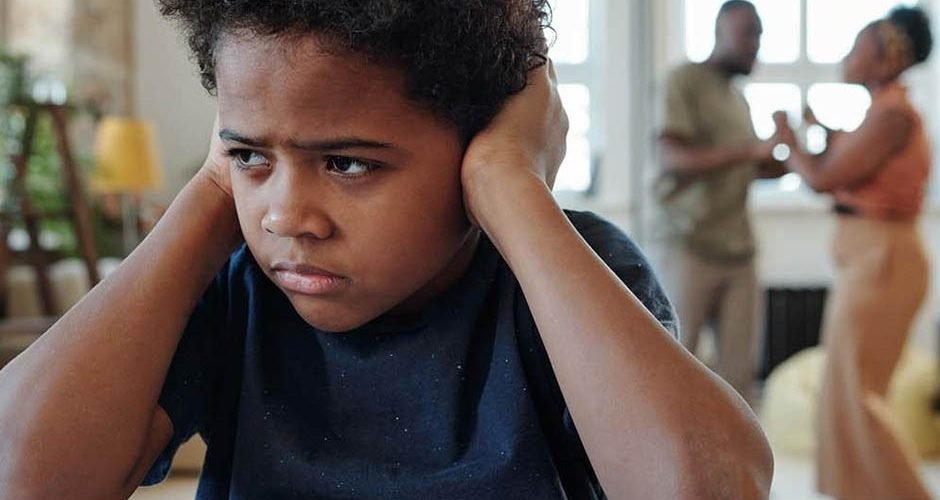Domestic violence, also referred to as intimate partner violence, is a grave concern impacting numerous families globally. It encompasses any behavior aimed at controlling, manipulating, or harming a current or former intimate partner. This can include physical violence, threats, emotional abuse, and financial control.
Children who witness domestic violence endure significant emotional distress and face the risk of developing long-term emotional and behavioral issues. Having an open and honest conversation with your child is crucial to ensure their safety and well-being. While such discussions may be challenging, creating a safe environment and conveying essential messages is paramount.
Table of Contents
Creating a Safe Space for Communication
Before starting the conversation, select the right time and place. It should be peaceful, private, and a moment when your child feels at ease and calm. Refrain from bringing up the topic during or immediately after an abusive incident, as this may heighten emotions.
Open communication is key. Inform your child that you’re always available to listen without criticism. Phrases such as “I’m here for you whenever you need to talk” or “It’s crucial to me that you feel comfortable sharing your feelings” can establish a safe environment for them to express themselves.
Initiating the Conversation with Care
Start the conversation with a message of love and support. You could say something like, “I care deeply about you, and I’ve noticed you’ve been feeling upset lately. Is there something bothering you that you’d like to talk about?”
Assess your child’s understanding by asking open-ended questions like, “What have you heard about what’s happening at home?” or “How does what’s happening make you feel?” Listen attentively to their responses without interrupting or dismissing their emotions.
It’s natural for children to feel scared, confused, or angry in response to domestic violence. A defense lawyer specializing in domestic violence says it’s important to validate your child’s feelings. Reassure them that it’s okay to have these emotions and that you’re here to support them.
Key Messages to Convey
There are several important messages you need to convey to your child during this conversation.
- It’s not their fault: Domestic violence is about the abuser’s behavior, not the child’s. Reassure them that they didn’t cause the situation and have no control over the abuser’s actions.
- Violence is not okay: Clearly state that no one deserves to be hurt or treated with violence. You can say, “Fighting or hurting someone is never the answer. There are better ways to handle difficult situations.”
- You are safe: Reassure your child that you love them and are committed to keeping them safe. Discuss any safety measures you have in place, such as a safety plan or a trusted adult they can go to if they feel scared.
- Help is available: Let your child know that there are people who can help. Talk about resources such as hotlines and support organizations (consider keeping a list on hand).
Considerations by Age Group
Tailoring your conversation to your child’s age is crucial. Here are some specific points to consider for different age groups:
Younger children (5-8): Use simple and clear language. Focus on safety and feelings. You can explain that sometimes grown-ups don’t handle situations well, and it’s not okay to yell or hurt each other. Reassurance and addressing their basic needs for safety and love are paramount.
Older children (9-12): Address complex emotions like fear, anger, and guilt. Offer age-appropriate information about the effects of domestic violence and resources available to help. You can discuss healthy relationships and how to identify red flags.
Teenagers (13+): Discuss healthy relationship dynamics and how to identify controlling or abusive behavior. Empower them to seek help from trusted adults, friends, or hotlines if they feel unsafe.
Self-Care for Parents/Caregivers
Conversations about domestic violence with your child can be emotionally taxing. It’s essential to acknowledge your own stress and seek support from trusted individuals or professionals such as therapists. Taking care of yourself is crucial as it enables you to be more resilient and supportive for your child.
Consider joining a support group where you can share your experiences with others who understand. Additionally, practicing relaxation techniques like deep breathing, meditation, or mindfulness can help manage stress levels. Prioritizing healthy habits such as getting enough sleep, eating well, and engaging in activities you enjoy can also contribute to your overall well-being.
Remember, by taking care of yourself, you’re better equipped to provide the necessary support and comfort for your child during this challenging time.
Talking to your child about domestic violence is a difficult but necessary conversation. By creating a safe space, conveying key messages of support and safety, and tailoring your approach to their age, you can help your child navigate this challenging situation. By having this conversation, you are taking a crucial step towards ensuring your child’s safety and well-being. There is hope for a brighter future.





